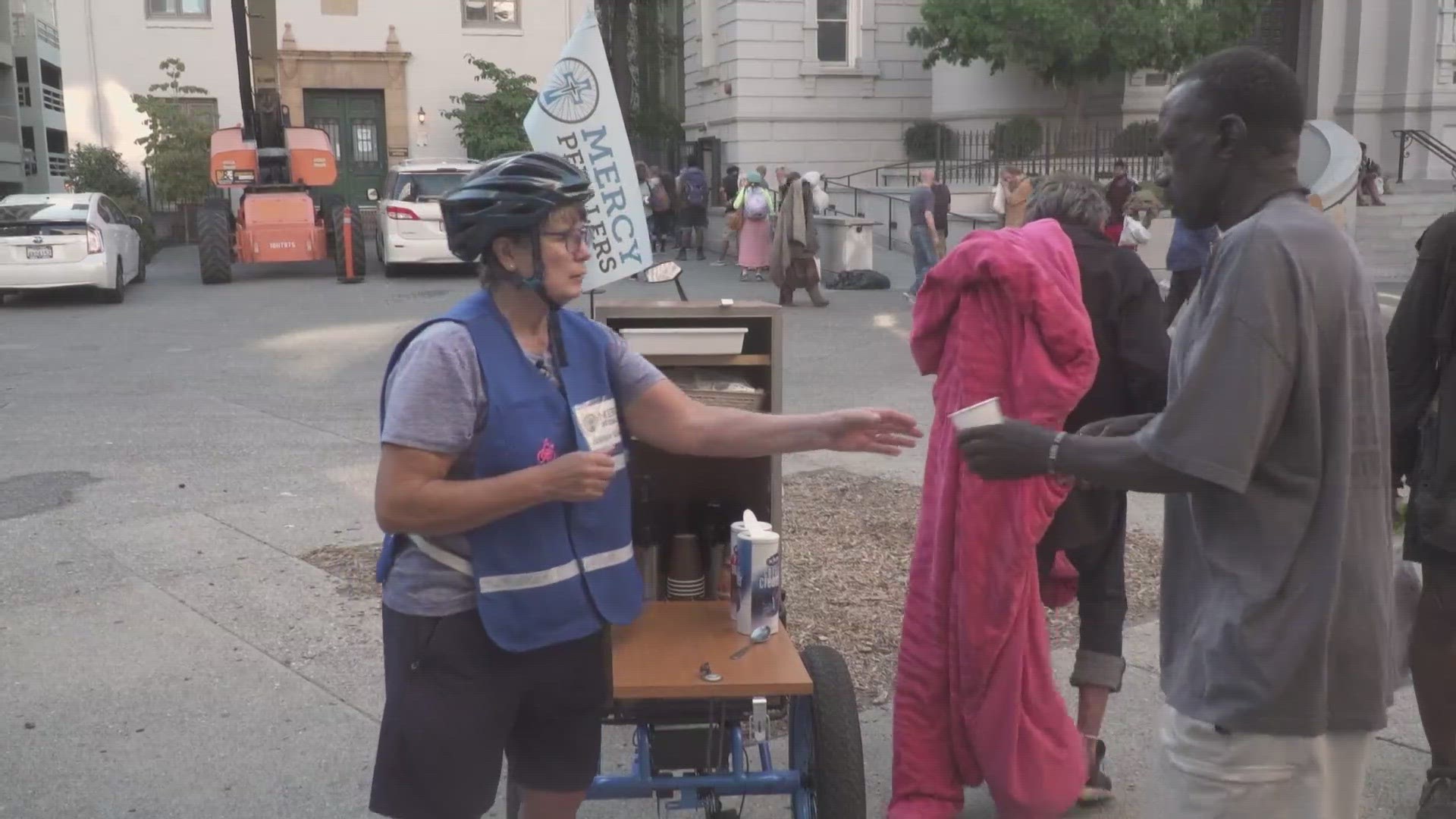SACRAMENTO, Calif. — Sister Libby Fernandez provides food and comfort to the unhoused every morning in front of the Cathedral of the Blessed Sacrament.
California has the largest homeless population in the country and the impact is seen every day. It’s something Fernandez wanted to change with her nonprofit organization Mercy Pedalers.
“We ask permission to come and say hello, and once the person says ‘yes, I would love a cup of coffee,’ then you get a little closer and you see eye to eye, and you start a dialogue of trust, communication and care that goes both ways,” said Fernandez.
She’s the founder of the nonprofit with the goal to “welcome the stranger.” Volunteers ride bikes and trikes equipped with goods to help make a difference in the lives of others.
"We bring hygiene items; soap, shampoo, coffee and nutrition bars, resources, like how to get into shelters,” said Fernandez. “But most importantly, we connect."
She says the Mercy Pedalers have grown overtime, gaining more than 300 volunteers in the Sacramento region.
“We've been doing it for seven years in different communities from Carmichael, to Oak Park and downtown Sacramento,” said Fernandez. “Every volunteer with Mercy Pedalers goes out at least once a week for a couple of hours in various neighborhoods and we see thousands of folks each day.”
GET MORE RACE & CULTURE FROM ABC10:
►Explore the Race & Culture home page
►Watch Race & Culture videos on YouTube
►Subscribe to the Race and Culture newsletter
According to nonprofit Sacramento Steps Forward, six in 1000 people are homeless in Sacramento County and people of color experience homelessness at disproportionately higher rates.
"The biggest thing about the numbers and the poor is that we are lacking supportive and affordable housing for any group of people — like people who are working hard — people who have two jobs and trying to pay for their rent and to people who cannot afford rent," said Fernandez.
Sacramento Steps Forward says Black people are three times more likely to be homeless than the general population in Sacramento and Native Americans are four times more likely to be homeless.
Angela Upshaw, Chief Operating Officer of Insight Housing, agrees with Sacramento Steps Forward’s findings and says she experienced being unhoused due to economic issues, even though she worked full time.
“Systemic racism has led to where we are today and it's deeply rooted in our policies and housing policies, and disparities in economic status, and it's led to a housing crisis. If you cannot afford housing, then you will become homeless,” said Upshaw. “The answer to ending homelessness is housing."
Until homelessness ends, Fernandez says Mercy Pedalers wants to be able to "continue to connect, gain that trust from each individual, so that way, when there is shelter, when there is housing, we are able to say, ‘hey, I can walk you through the steps.'"
We want to hear from you!
The Race and Culture team's mission is to serve our diverse communities through authentic representation, community engagement and equitable reporting.
Accomplishing our goals of inclusive reporting requires hearing from you. Is there a person or place that you want us to highlight? Email us at raceandculture@abc10.com or fill out the form below.

